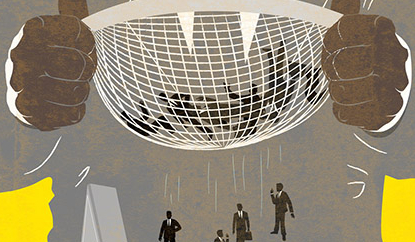英文法律词典 E-34
|
EXCHEQUER R, Eng. law. An ancient court of record set up by William the Conqueror. It is called exchequer from the chequered cloth, resembling a chesshoard, which covers the table there. 3 Bl. Com. 45. It consists of two divisions; the receipt of the exchequer, which manages the royal revenue; and the court, or judicial part of it, which is again divided into a court of equity, and a court of common law. Id. 44. 2. In this court all personal actions may be brought, and suits in equity commenced, the plaintiff in both (fictitiously for the most part) alleging himself to be the king's debtor, in order to give the court jurisdiction of the cause. Wooddes. Lect. 69. But by stat. 2 Will. IV. c. 39, s. 1, a change has been made in this respect. EXCHEQUER CHAMBER, Eng. law. A court erected by statute 31 Ed. III. c. 12, to determine causes upon writs of error from the common law side of the court of exchequer. 3 Bl. Com. 55. Another court of exchequer chamber was created by the stat. 27 El. c. 8, consisting of the justices of the common bench, and the barons of the exchequer. It has authority to examine by writ of err6r the proceedings of the king's bench, not so generally as that erected by the statute of Edw. III., but in certain enumerated actions. EXCISES. This word is used to signify an inland imposition, paid sometimes upon the consumption of the commodity, and frequently upon the retail sale. 1 Bl. Com. 318; 1 Tuck. Bl. Com. Appx. 341; Story, Const. §950. EXCLUSIVE, rights. Debarring one from participating in a thing. An exclusive right or privilege, is one granted to a person to do a thing, and forbidding all others to do the same. A patent right or copyright, are of this kind. EXCLUSIVE, computation of time. Shut out; not included. As when an act is to be done within a certain time, as ten days from a particular time, one day is to be included and the other excluded. Vide Hob. 139; Cowp. 714; Lofft, 276; Dougl. 463; 2 Mod. 280; Sav. 124; 3 ]Penna. Rep. 200; 1 Serg. & Rawle, 43; 3 B. & A. 581; Com. Dig. Temps, A; 3 East, 407; Com. Dig. Estates, G 8; 2 Chit. Pr. 69, 147. EXCOMMUNICATION, eccl. law. An ecclesiastical sentence, pronounced by a spiritual judge against a Christian man, by which he is excluded from the body of the church, and disabled to bring any action, or sue any person in the common law courts. Bac. Ab. h. t.; Co. Litt. 133-4. In early times it was the most frequent and most severe method of executing ecclesiastical censure, although proper to be used, said Justinian, (Nov. 123,) only upon grave occasions. The effect of it was to remove the excommunicated "person not only from the sacred rites but from the society of men. In a certain sense it interdicted the use of fire and water, like the punishment spoken of by Caesar, (lib, 6 de Bell. Gall.). as inflicted by the Druids. Innocent IV. called it the nerve of ecclesiastical discipline. On repentance, the excommunicated person was absolved and received again to communion. These are said to be the powers of binding and loosing the keys of the kingdom of heaven. This kind of punishment seems to have been adopted from the Roman usage of interdicting the use of fire and water. Fr. Duaren, De Sacris Eccles. Ministeriis, lib. 1, cap. 3. See Ridley's View of the Civil. and Ecclesiastical Law, 245, 246, 249. EXCOMMUNICATIO CAPIENDO, WRIT OF, Eng. eccl. law. A writ issuing out of chancery, founded on a hishop's certificate that the defendant had been excommunicated, which writ is returnable in the king's bench. F. N. B. 62, 64, 65 Bac. Ab. Excommunication, E. See Statutes 3 Ed. I. c. 15; 9 Ed. II. c. 12; 2 & 3 Ed. VI. c. 13; 5 & 6 Ed. VI c. 4; 5 Eliz. c. 23; 1 H. V. c. 5; also Cro. Eliz. 224, 6,80; Cro. Car. 421; Cro. Jac. 567; 1 Vent. 146; 1 Salk. 293, 294, 295. |








